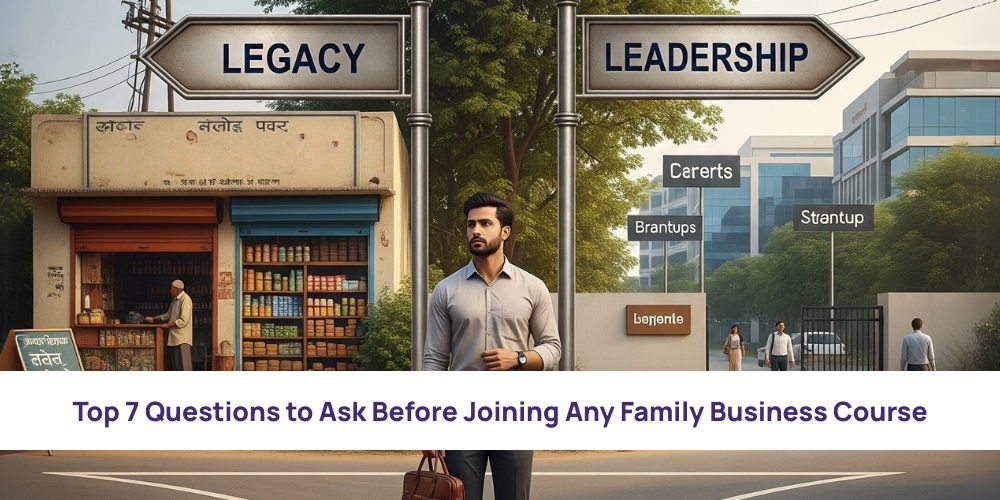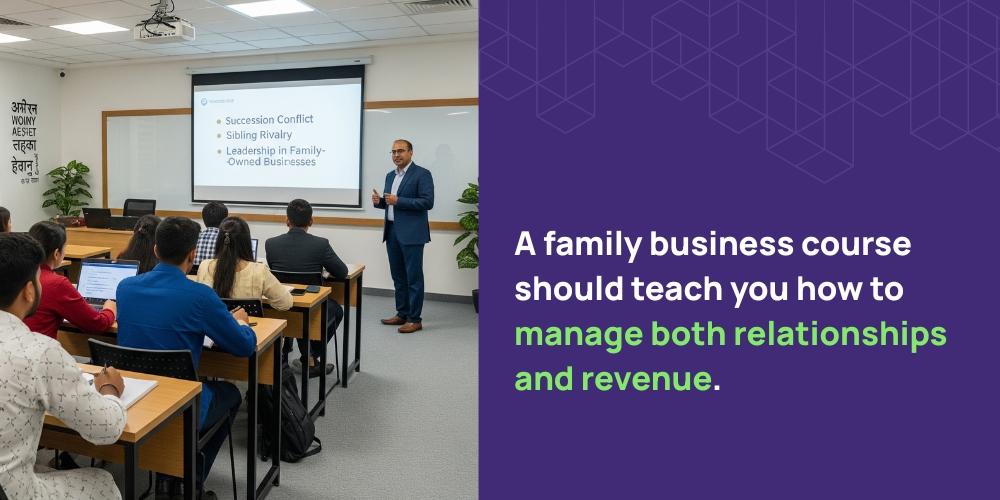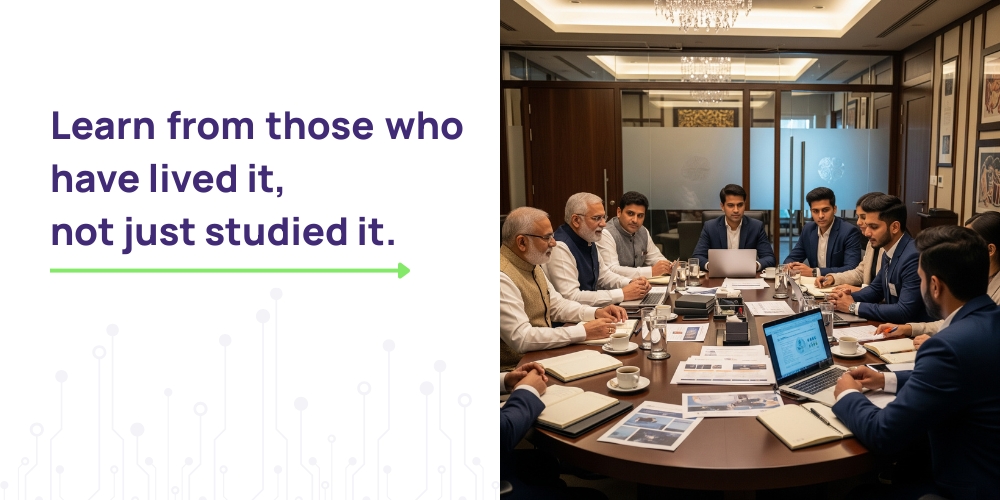

Choosing a family business management course isn’t just about picking a program, it’s about deciding the future of your legacy. Whether you’re a second-gen entrepreneur stepping into your father’s shoes or a 3rd generation founder trying to modernize an existing empire, enrolling in a Post Graduate Programme in Entrepreneurship and Family Managed Business (PGPEFMB) can shape how you lead, innovate, and transform your business.
But not all programs are designed equally.
Before signing that application form, you need to ask yourself some hard questions.
The goal isn’t just to get a certificate — it’s to build clarity, confidence, and capability for running your family enterprise.
Here are the 7 most important questions you should ask before joining any entrepreneurship and family business management course:

Many institutions repackage standard MBA modules and slap on a "family business" label. That’s not what you need.
Look for a course that genuinely understands the nuances of family-run enterprises — like:
The best family business education programs don’t treat you like a corporate executive. They treat you like a steward of legacy, navigating both spreadsheets and sentiment.
If the people teaching you haven’t lived through family business drama, their advice might not help when the boardroom turns emotional.
Your ideal program should offer:
In a post graduate family business course, mentorship isn't a bonus — it's the backbone. Ask if you’ll get personal mentoring, exposure to founders, or access to advisory boards.
This is huge.
Many next-gen entrepreneurs are already part of their family enterprise. You’re not waiting to launch a business — you’re trying to transform one.
Ask if the program includes:
Courses that don’t connect directly to your family enterprise might teach you frameworks, but they won’t build transformation.

Today’s Indian family businesses aren’t playing in a local sandbox. From exporting textiles to acquiring overseas startups, we’re building global stories.
Your program must:
If you're in your 2nd generation or preparing for a 3rd generation handoff, global exposure is essential to stay competitive.
In the world of family business, your network is your second legacy.
Find out:
The best family business postgraduate programs often create peer groups that become partners, board members, or co-founders in the future.
Leadership in a family-managed business is complex.
You’re not just running operations. You’re managing relationships. Carrying expectations. Defining legacy.
Ask if the program helps you build:
Great family business leadership programs don’t just teach you how to grow a company — they teach you how to grow into the person who can lead it.

The biggest challenge in family businesses is not strategy. It’s emotion.
You’re dealing with:
Ask if the course covers:
The best PGPEFMB programs teach how to put systems in place without losing the soul of your family business.
The top family business management courses in India aren’t just academic journeys, they’re emotional, strategic, and deeply personal transformations.
When done right, they help you: